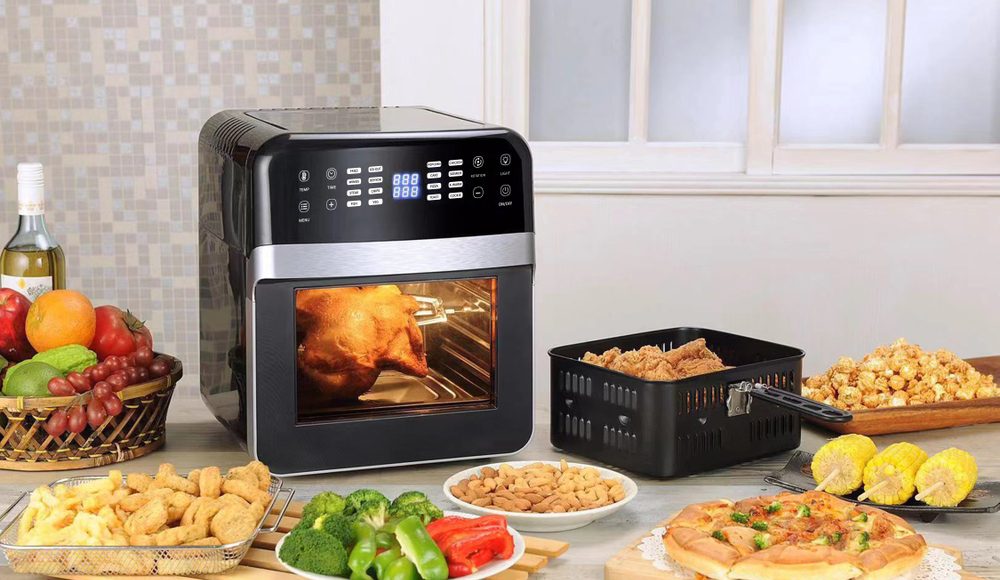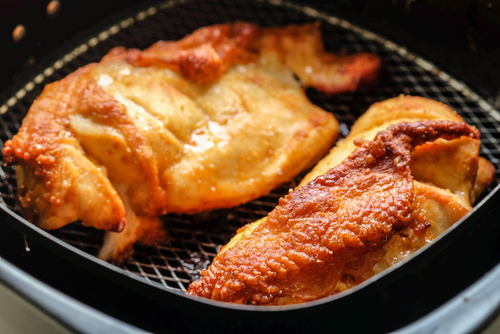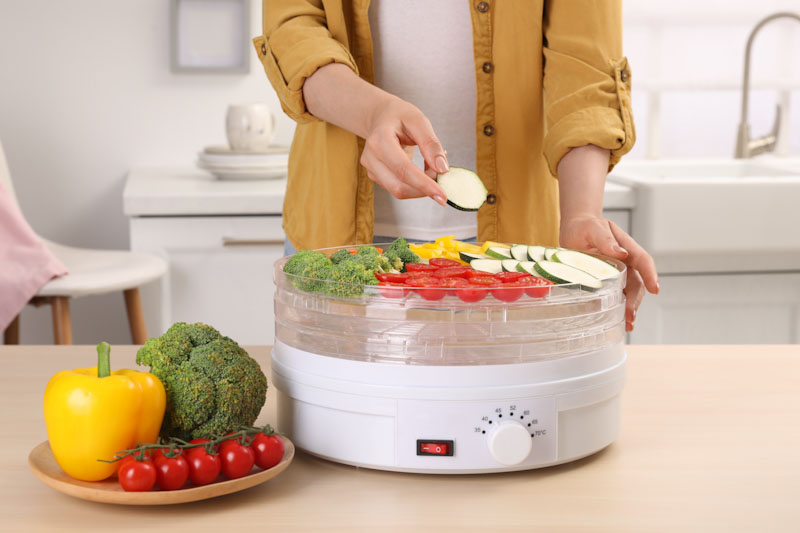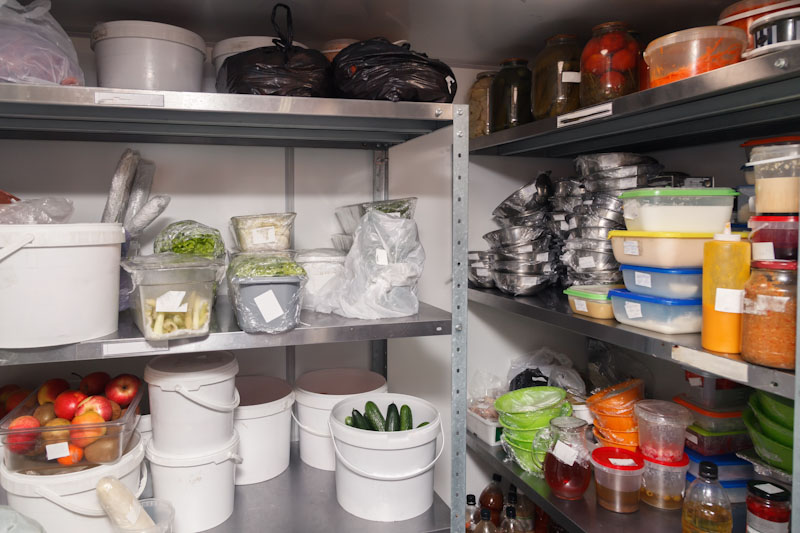As a prepper, you never know when cooking efficiently is going to be more important than relying on natural resources such as solar power or campfires.
Let’s say you live in a city and are years away from achieving energy independence, or unable to stop noxious laws that prevent you from generating power. Under these circumstances, using as little energy as possible is your only way to control the businesses and governments that are strangling you as well as ensure that you can prepare healthy meals.
Today, air fryers are emerging as a means to use less power than toaster ovens, stovetops, and other devices that you might use to fry, dehydrate, or bake foods. Choosing the right device, however, can be complicated especially if you aren’t aware of all the options open to you.
What is an Air Fryer?
Basically, an air fryer uses a high temperature in a limited space combined with strong air convection to fry food instead of baking them. Unlike a conventional fryer, you do not need to immerse the food in a container of hot oil.
In order to get the same flavor and food texture, however, some foods need to be lightly coated in oil. For example, bread, turnovers, and other pastries that don’t have a lot of surface oil will require a light coating. You can use a pastry brush, or simply put about a ¼ teaspoon of oil on your hands, and then roll the food around until it is coated.
Other foods, such as chicken with the skin on, or other naturally oily foods do not need an additional coating of oil. All you have to do is put them in the fryer basket and set the temperature and time that works best for the food in question.
Why Every Prepper Should Have One
Over the years, I have made considerable effort to do as many things as possible without electricity, as well as to generate it using small-footprint devices that can be used in a wide range of places. That doesn’t mean I am unaware of the benefits associated with some devices that require a bit more power to operate. Even though air fryers and a few other devices on my list aren’t likely to survive an EMP or be useful in a complete power outage, they still have use now, as well as in situations where electricity is available.
Here are four reasons why I think air fryers deserve a place in just about every prepper’s stockpile, as well as some tips on how to get the best one for your needs:
Less oil means better health
Even though you may be using vegetable oil or other “healthy” oils in your deep fryer, the high temperatures can still cause harmful changes in the oil. This includes increasing the trans-fats in the oil, as well as causing other problems. By contrast, when you use an air fryer, there is very little oil added to the food. No matter how much you dry off foods after they have been removed from a conventional deep fryer, the oil content will never be as low as what you get from food cooked in an air fryer. When choosing an air fryer, it is tempting to choose one that has the highest possible temperatures. You are better off looking for a fryer that has temperature settings in the 200 – 300-degree range. The lower the temperatures, the fewer problems you will have with the oils converting to trans-fats.
Cheaper, easier, and safer to use than a conventional deep fryer
If you have ever used a conventional deep fryer, then you already know that just keeping the power cord connected to the device can be very challenging. By the time you factor in cleaning the fryer, handling hot oil, and avoiding burns and splatters, it is fairly easy to see that even the best deep fryers don’t compare to the ease of an air fryer. In the case of the latter, all you have to do is clean up two small items and the fryer is ready to go. Today, there are air fryers of all sizes and shapes on the market. I tend to like larger devices simply because there is more room to turn the food and check on its progress. While smaller devices can save space, larger ones can be used to cook more food at once as well as make it easier and safer to do so.
Explore a wider range of foods with an improved taste
Unless you use a conventional fryer on a daily basis and have the time to maintain it, you will wind up wasting a lot of oil. Remember, depending on the oil, it will need to be stored in the refrigerator after it is cool, and then it will break down within 2, maybe 3 times in the fryer. To add insult to injury, the oil is likely to go rancid in about a week no matter how carefully you strain it. What happens, though, when you want to try frying squash, making your own spring rolls, or wish to try your hand at apple turnovers, but don’t have the time or inclination to do all that over the course of 3 -4 days? When you use an air fryer, you never need to reuse the oil, let alone worry about storing it. As a result, you can use the fryer whenever you want and cook whatever you want in it. No matter whether you want to cook fish one day and pastries the next, you can do it all in an air fryer. The capacity to explore many different foods is why I most often recommend a toaster oven air fryer combo that has a temperature setting that goes below 200 degrees. These toaster ovens offer the perfect place to air fry large or small amounts of food, or you can use the device as a dehydrator to compare cooking outcomes for foods like potato and other vegetable chips.
Can replace multiple devices
The other nice thing about air fryers is, depending on the model, they can take the place of a dehydrator, an oven, and a broiler. As long as you choose a device that has a low enough temperature setting for a dehydrator, and enough space for broiling food, then you can replace several devices with just one. Without a question, if you are downsizing your kitchen with an eye towards easy packing for an evacuation, multiple-use devices like an air fryer should be at the top of your purchase list.
Other Features to Look For
Cost-wise, one of the first things you will notice is that good quality, larger sized air fryer is about the same price as a toaster oven air fryer combo. The nice thing about the toaster oven combo is that you have a conventional, rectangular cooking space to work with as well as racks that make it much easier to position foods. When shopping for a toaster oven air fryer, here are some features that matter, and some that don’t:
- Does need to dedicated controls for cooking type, temperature, and amount of time to cook. Personally, I rarely go by recipe directions insofar as cooking time because of device differences and environmental factors. That all being said, it does help to have a good quality timer when you are using an air fryer. Typically, these devices are very compact and well insulated. Even a minute or two extra can cause the food to start burning, especially if you are still accustomed to the slower pace of a deep fryer.
- Does not need a clock – there are probably plenty of other devices in your kitchen that already have a clock on them. It is better to choose an oven that is a little bigger or has other useful features.
- Does not need a digital display or digital temperature controller – I must admit that having a keypad to enter exact temperatures can be a nice feature. On the other side of the equation, these pads can wear out faster than knobs, and may not be as accurate. If you are looking for a budget appliance that is likely to give you a larger size cooking area, or other features, digital displays are one thing you can forego.
- Does need easy to clean surfaces – If you cannot easily remove the drip tray or racks, air fryers can get very dirty and leave food with a bitter taste from old bits of food burning. You should also be able to easily get at the sides and back of the oven to clean off splatters of oil and other materials.
When food shortages hit, you may not be able to afford vegetable oil, let alone waste other fats for deep frying. At the same time, if energy independence and food independence are top priorities in a non-emergency situation, air fryer can be very useful. Aside from using less electricity, you can also use them to explore a wide range of foods in time frames that are comfortable for you.












ZIPPY | July 13, 2020
|
Carmella, I thought “vegetable” oil was one of the worst or most unhealthy oils you could use. Was told to use extra virgin olive or, for higher temps, use avocado oil. Other than that, you got me thinking about air fryers, especially plugged into my solar generator to use less power
Dale | July 13, 2020
|
I’m confused about your statement that high temperatures create trans fats. I always understood that trans fats are something that were created by a special process that was developed in a lab. I use extra virgin olive oil for everything. Does cooking at high temperatures cause extra virgin olive oil to create trans fats? Otherwise, great article! I’ve never even considered an air fryer. I just figured that, when the SHTF I’d have to give up fried foods because you can’t store the oil for more than a few months before it goes rancid. Thanks for the info!
Kevin S | July 13, 2020
|
Three weeks ago, my brother bought a medium-sized air fryer. After trying it, he has decided to never again deep fry or pan fry.
He also mentioned actually feeling healthier in such a short time.
So, early next month, I’ll be buying one for myself.